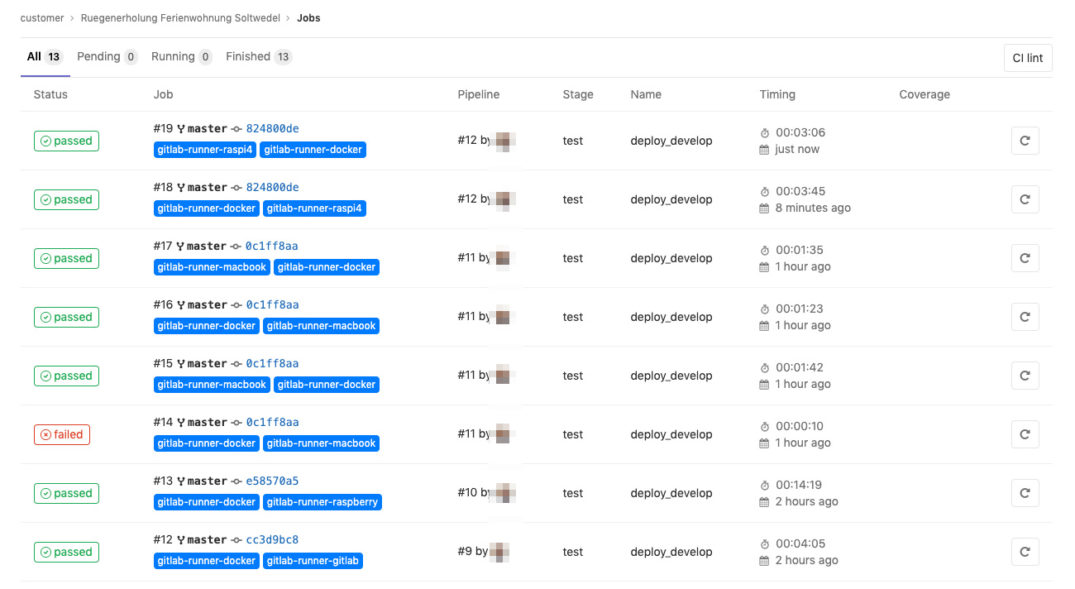I am using GitLab Runner for deployment and building processes. When running smaller tasks this could also be done on a raspberry pi. This is why I’m using raspberries as GitLab Runner nodes within my network. Here are instructions how to install the GitLab Runner on a Raspberry Pi.
I wanted to know how well different setups perform running a standard GitLab Runner job. So I installed a GitLab Runner on different machines to run the same build test on different environments.
| Machine | Setting |
| Test 1 Raspberry Pi 3 | Raspberry Pi 3 Model B+ (2017) 4x 1,2 Ghz CPU (ARM-Cortex-A53) 1 GB RAM |
| Test 2 Raspberry Pi 4 | Raspberry Pi 4 Model B (2019) 4x 1,5 Ghz CPU (ARM-Cortex-A72) 2 GB RAM |
| Test 3 msi Mini PC | msi Mini PC 4x 1,6 Ghz CPU (Intel Celeron N3150) 4 GB RAM |
| Test 4 MacBook Pro | MacBook Pro (2014) 2x 3Ghz cPU (Intel Core i7) 16 GB RAM |
Of course it is not too surprising that the Raspberry Pi Model 3 is not the most performing. But the performance difference between Raspberry Pi 3 and Raspberry Pi 4 is surprising.
The test case is very simple. All machines running a docker environment. The test is using the debian docker image. It installs PHP, Node.js and is executing a very small npm build process.
Each test is run four times. First time to download the debian docker image. Three times to get a variation of runs. The needed time is the median value of those three runs.

The Raspberry Pi 4 gives a very good overall performance ( for small tasks ). The used Raspi is running in default configuration. No overclocking and no active cooling. With active cooling there should an even better performance be possible.
| Machine | Test Duration |
| Test 1 Raspberry Pi 3 | 857 seconds ( 14:17 minutes ) |
| Test 2 Raspberry Pi 4 | 182 seconds ( 03:02 minutes ) |
| Test 3 msi Mini PC | 245 seconds ( 04:05 minutes ) |
| Test 4 MacBook Pro | 143 seconds ( 01:23 minutes ) |
Maybe this is any interesting for you.
cheers,
Sebastian
